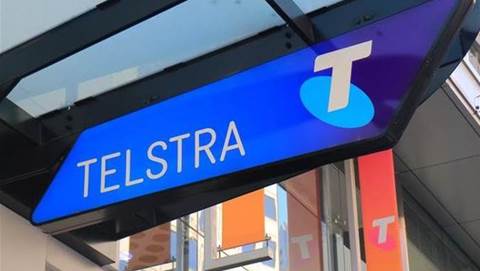Australia's consumer advocate ACCAN has argued for the introduction of enforceable service level agreements on the national broadband network to ensure users are guaranteed a minimum level of service.

ACCAN made the argument in its submission to the ACCC's current consultation on NBN Co's wholesale broadband agreement with retail service providers.
The consumer group said the so-called WBA3 agreement does not adequately protect consumers as its focus is on network management rather than consumer demand.
There must be incentives and accountability measures on NBN Co to deliver a certain level of service even though it does not deal directly with end users of the network, it said.
"Consumers may have no choice in the network that services them as NBN is, in effect, a monopoly," ACCAN said.
"Therefore, it is important that minimum connection, repair and reliability standards apply.
"Consumers currently do not have guarantees in relation to connection, reliability and repair
timeframes for broadband and this puts their services at risk. "
ACCAN said it was difficult for consumer to enforce their rights without a clearly codified framework, especially when issues occur at the wholesale level.
"Improved consumer protections policy is required to adequately manage the tension between wholesale and retail performance," it said.
"Creating lines of accountability from the wholesale provider to the retailer and thence from the retailer to the consumer is more likely to create a network responsive to consumer needs."
It argued the fact that the most commonly reported issues with the NBN were connection delays and unusable services demonstrated the current arrangement was broken.
"For an obligation to be sustainable, it should provide for a level of network service which realistically balances consumer need with the technical and resource limits of the network," ACCAN said.
"The obligations should deliver a baseline level of adequate service to individual consumers."
It wants to see customer service standards introduced that set out timelines for fault rectification, new connections, existing connections (where infrastructure is already in place), and appointments.
ACCAN also said reliability measures that set out "agreed independent performance benchmarks for network availability" should be introduced to ensure end users are provided a high level of network connectivity.
These measures should include metrics for the number of minutes a customer can be without service in a year, the number of times a customer's supply can be interrupted annually, and the duration of each interruption, ACCAN said.
"Using these measures, network reliability can be improved by identifying areas for remediation which are causing significant consumer detriment," ACCAN said.
'Too costly'
In its own submission to the ACCC inquiry, NBN Co warned more stringent service levels would impose significant costs that it would likely have to pass on to retail service providers.
For example, the company already pays RSPs a "rebate" for network faults that affect end users, but the rebate only kicks in if NBN Co dips below an overall "performance objective".
The company does not pay out on every fault, nor should it, NBN Co argues.
“NBN Co would incur significant additional costs if it were to provide a service fault rebate for every end user fault that is not resolved within the service level timeframes," it said.
"These costs would have follow-on consequences for the existing design of the service fault rebate, service levels and NBN Co's priorities more broadly.
"This would also include the cost and time associated with renegotiating our upstream supply agreements to allow NBN to deliver such a change."
Additional costs would "have to be offset" either by extending the timeframes for service levels, diverting resources from the rollout, or by passing the additional costs on to RSPs, NBN Co said.
The network builder argued it already had "significant incentives" to resolve service faults, not least because its revenue depends on an operational network and happy end users.
"Long-outstanding faults create significant reputational difficulties for NBN Co, given that the likelihood of public end user complaints and negative media attention increases with the time that an end user fault is left unresolved and such negative coverage of nbn materially increases nbn’s bypass risk," it argued.
"Accordingly, even once it has exceeded the service level timeframe, NBN continues to have a strong incentive to resolve an end user fault as soon as possible."




















